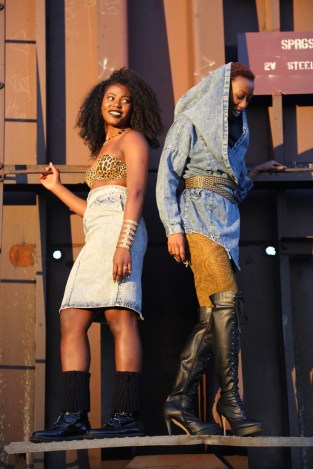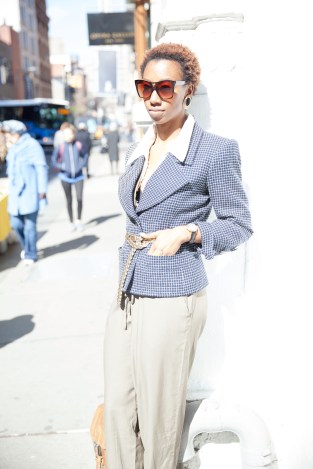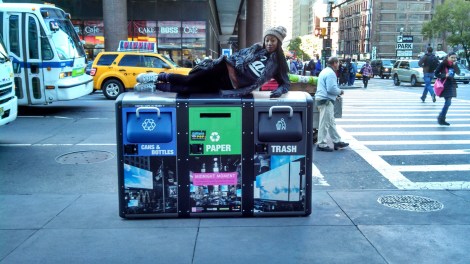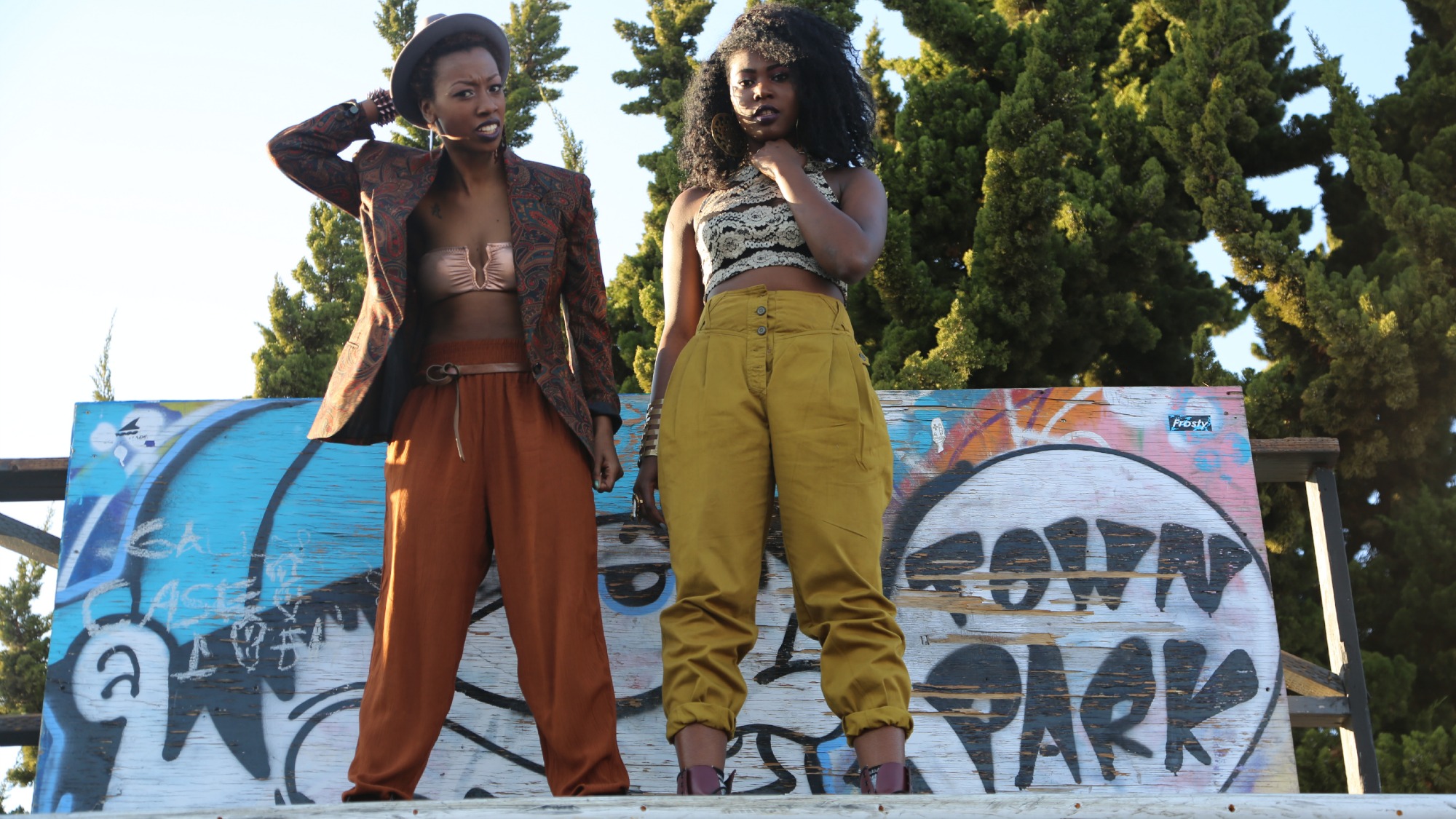The Drakeford sisters didn’t start thrifting because it was the environmentally friendly thing to do. They just had a fashionable reputation to keep up in Oakland, and vintage threads were affordable, unique, and helped them stand out. “People knew us — ‘Oh, the Drakeford sisters,'” Dominique Drakeford told me over the phone recently. “We had this really cool identity.”
It wasn’t until she was studying business and environmental management in college that everything clicked. “I decided vintage is one of the most radical forms of sustainable fashion,” she said. There’s no production with used clothing, she says, and the price point makes it more accessible than new green fashion choices.

Pendarvis HarshawJazmine, left, and Dominique, right.
And so three years ago, Dominique, together with her sister Jazmyne, started a semi-annual community thrift sale in Oakland. The pair brings bags of their own clothes to a youth center in East Oakland. They put reasonable price tags on the threads — from $1 to $15 — and donate a portion of the proceeds to a program that helps send East Oakland youth to college.
There’s an educational component, too. Attendees learn about sustainable fashion and take a pledge to be more responsible consumers. The events have sparked a lot of interest in the topic — participants often offer to volunteer at future events — and clears up misconceptions. Many of the attendees of the first sale hadn’t even heard the term sustainability, Dominique says. If they had, “they thought that in order to participate, they had to spend a lot of money on organic cotton,” she says. “That’s not the case. You can be a part of this movement.”

Timothy Smith
Today, Dominique is deep into the sustainable fashion movement. She’s sporting a master’s degree in sustainable entrepreneurship and fashion from NYU, and lives in New York, where she models, runs her own PR company, and helps put on fashion shows and shoots. She’s rubbed shoulders with DKNY’s Donna Karan and works with exclusively sustainable companies — from Skraptacular, which teaches kids to create art out of trash to REpurposingNOLA, an accessories company that sources materials and labor from New Orleans.
Jazmyne still lives in Oakland, where she has her own line of repurposed vintage, Blvck Nostalgia and a YouTube channel where she posts videos on fashion and beauty. The sisters influence each other and still find time to thrift when they’re together. Their advice for those of us who are looking to score great vintage? Dominique recommends patience, first and foremost, as well as figuring out different stores’ price points, taking lots of photos to see how things fit, and getting great, but ill-fitting, finds altered.
When I asked Dominique how sustainability could change the fashion industry, she remembered a question one of her professors once asked: “What do you do if there’s a man throwing babies off a cliff? Do you go to the river and save the babies that he’s throwing? Or do you go to the cliff and stop the problem there?”
“The thing with the fashion industry is that you have to do it in both places,” she said. “There are issues with production, consumption, marketing, distribution, large corporations, governments, and regulations. That’s the cool thing about what I’m seeing: People are finding a niche and finding what their passion is, and they’re attacking it for the greater good of the issue. It needs to be attacked at every level.”

Anthony Hopkins



